Robert Coyne - Interview
by Malcolm Carter
published: 8 / 11 / 2016
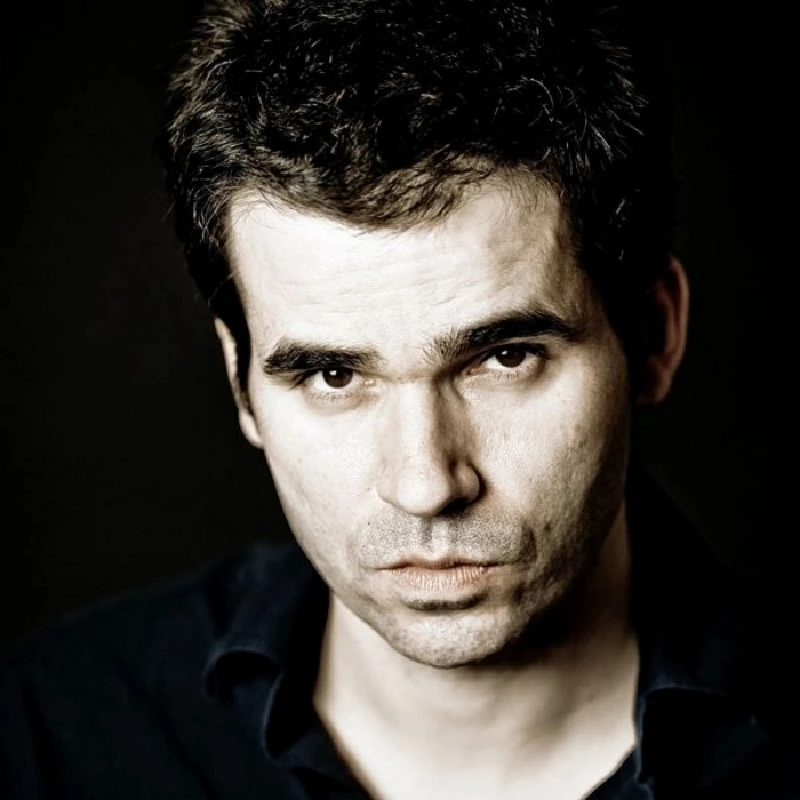
intro
Malcolm Carter talks to singer-songwriter Robert Coyne about his late father Kevin Coyne, his past albums and also 'Last Lion', his latest collection
When we hear that the son or daughter of an admired musician has also chosen to make music their career we are often tempted to check them out simply out of curiosity; are they trying to duplicate their parent’s work and gain some kind of fame on the back of their music or are they genuinely interested in music and would have maybe chosen that path anyway? Robert Coyne is the son of Kevin Coyne who was one of the most unique musicians and artists this world has yet produced. So if Robert had any thoughts about trying to duplicate his father’s work he was in for an uphill struggle to say the least. Thankfully and refreshingly Robert, although playing in his father’s band for some years, chose a musical path for all the right reasons and didn’t even try to emulate the unique music that Kevin was renowned for. From his very first released recordings it was obvious that although he had inherited his father’s passion for music he wasn’t even going to try to emulate what Kevin achieved but was going to go his own way and make it or break it on his own terms. Robert’s three albums with Can’s legendary drummer Jaki Liebezeit are probably his best known. A perfect blend of both musicians’ roots, the results of the partnership were something truly original and inspiring. Robert’s skill on acoustic guitar and his ability to write captivating lyrics, not to mention his immediately welcoming vocals and strong melodic leanings have guaranteed that Robert’s music be it solo or with contributors, has never been less than fascinating. For 'Last Lion' his latest album, Robert has joined forces with drummer Werner Steinhauser who co-produced Robert’s 2014 collaboration with Jeremy Gluck, ‘Memory Deluxe’. 'Last Lion' features thirteen songs including four inspired covers, that explore Robert’s more electric side, and can be found on the Turpentine Records label. We recently had the opportunity to ask Robert a few questions and are pleased to present his answers here. PB: You were obviously around musicians and music must have played a major part in your childhood but when and what was the motivation for making music your career? RC: I never really did make a conscious decision to try and make a career out of it, but music was a strong presence in my life from an early age, as you say, and became something of a refuge for me as I got older; by the time I was thirteen or fourteen I was completely absorbed by it. PB: Your father was a truly unique artist. It sounds like musicians’ offspring often feel they have to carry on the work of their parents and replicate their work. Thankfully you’ve not tried to take on that impossible task but did you feel the pressure that expectations would be high because of your father? RC: I've never thought about that much, which is perhaps just as well, as Dad really was a genius, I think. It's probably been helpful for me that my music is quite different from his, and doesn't invite too many comparisons. PB: ‘Last Lion’ is on the Turpentine Records label, set up to reissue your father’s work. It’s your first release on the label, I think I’m right in saying, since your debut album in 2007. Why the return? RC: Me and Werner Steinhauser always had Turpentine in mind for 'Last Lion', as I knew it wasn't very likely Meyer Records would want to put it out, as much as I'd have liked them to; Meyer is a wonderful label, and Werner Meyer and Petra Muenchrath are the nicest people I've ever met in the music business, but they're primarily into more intimate, acoustic-based music. I did offer it to them and they - very graciously - declined, so we reverted to plan A, which was Turpentine. PB: Are there any plans to record more albums with Jaki Liebezeit? the trilogy on the Meyer Records imprint have been very well received. RC: We haven't talked about it yet, but I'd love to do another one, if Jaki and Meyer Records would like to. Playing with Jaki is wonderful; a great privilege. On 'I Still Have This Dream', the new album we've done together, there's a long song we recorded in one take, called 'Thank You'; Reinhard Kobialka, the engineer, added a lot of beautiful tape echo effects to it, and it has a spacey, menacing but meditative mood I like a lot. I hope we might have the chance to try doing some more things in that vein. PB: ‘Last Lion’ is being promoted as a solo Robert Coyne album. The only other musician featured is percussionist Werner Steinhauser. This isn’t the first time you have made music or worked together, is it? How did you meet? RC: Werner played the drums with my Dad for many years - I think he played with him for longer than any other musician, in fact - and we met when I began playing live with Dad myself, about twenty years ago. We always got along well, but after Dad died in 2004 we began working on my own music together, and became much closer friends; I think we each provided the other with a kind of continuity and connection to Dad that was very comforting at that time. Werner has played on and co-produced almost all of the music I've made since then, apart from 'Woodland Conspiracy' and the albums with Jaki, and we've done quite a few gigs together as a duo recently, which I hope we'll continue to do. He's one of my favourite people; a warm, very funny guy, and a brilliant drummer. PB: The thirteen songs on ‘Last Lion’ are a departure from most of your previous work, almost like you are getting back to a more basic rock’n’roll sound. Was that something you were aiming for? RC: No, not really, although I can see it might look that way, given that it's a while since I've released an all-out rock album. Some of 'Last Lion' was written concurrently with the Meyer Records albums, in fact - and with the album I did with Jeremy Gluck in 2014, 'Memory Deluxe', which is quite similar to 'Last Lion', sound-wise - but that kind of material takes me a lot longer to finish... 'Woodland Conspiracy' and the albums with Jaki are very spare instrumentally, and were recorded very quickly with a great engineer in a great studio in Cologne, whereas 'Last Lion' was recorded at home, Werner's drums aside. There are a lot of parts on it - more than is perhaps immediately apparent - and for better or for worse I have a very painstaking, perfectionist approach to recording myself. PB: Two of the songs were featured on your ‘Soft Tread of the Future’ EP which was issued on Red Star Digital; they fit in seamlessly with the other songs on ‘Last Lion’. Did the sound you captured on that EP sow the seeds for this full-length album? RC: Again, not really! 'Last Lion' is a kind of compilation of things I've written and recorded over a long period, and I think those songs were ones that we'd recently finished when Marty Thau asked me to do the EP in 2012; they're probably the oldest things on the album, apart from the instrumental, 'Woman with a Weasel', which I originally recorded for the 'Great Happiness Space' soundtrack in 2006 - ten years ago! My sound is pretty consistent though, at least on the music me and Werner produce together, so fitting the songs together wasn't difficult. PB: It’s possible with many artists to hear their influences in the music they make. It’s not so easy with your work! Do you feel any other artists have influenced your music? RC: Yes, absolutely - the influence I can hear most clearly myself is Marc Bolan, particularly in my guitar-playing, but there are lots of others; Alan Vega and Suicide, Fleetwood Mac, MC5, Kraftwerk, Chrome... all of which I listened to very intensely as a teenager and in my twenties, and am still listening to. I'm also a big fan of David Ackles, Bob Dylan and Mickey Newbury - they're my favourite singer-songwriters, I think - Miles Davis, Magma, Bloodrock... I'm sure I've been influenced by all of them, however obscurely. PB: Are you a prolific writer? Does songwriting come easy to you or are you constantly searching for inspiration? I guess now you are going to point us to the final song on ‘Last Lion’! RC: I wouldn't say I'm a prolific songwriter, but I am very determined... I try to work on music every day, if only for an hour, so I'm constantly chipping away at songs; not very many of them really come easily. Trying to write what became 'No More Material', the last song on 'Last Lion', I really was feeling I'd run out of ideas completely... then I realised that that could be the subject of the song. PB: I really like your interpretations of the four non-originals on ‘Last Lion’. Why those particular four songs? The placing of ‘All the Tired Horses’ halfway through the album is brilliant timing. RC: Thanks a lot. They're all just songs I responded to very strongly, for one reason or another. I learned and very crudely recorded the basic track for 'Underground', singing and playing acoustic guitar into one microphone, within an hour or two of first hearing it; it's such a great song. 'Burning Head' was never recorded by my Dad, although he re-used the title later; I think he performed it on one tour and forgot about it. The tour was filmed for TV though, and I was absolutely knocked out by that song when I first saw and heard it, about ten years ago - it's one of his greatest performances, I think. 'Rock and Roll Shoes' is to me a joyful, innocent song made very poignant by Chuck Willis' early death, and by the death of the rock and roll era itself, maybe... and 'All the Tired Horses' is an incredible introduction to that Dylan album; I don't think anyone else has ever used the first song on an album to warn the listener not to expect too much from the rest of it. That really appealed to me. PB: You’ve been involved in music for some years now and things have changed so much in that time. Do you feel it’s getting harder to get your music heard now that everyone has the chance or has the way technology has advanced so quickly made it easier for you? RC: I don't know. I've had more interest in the music I've made recently than in anything I did previously, so I think it might be easier now. I have also done a few more gigs than in the past, so I've perhaps been a bit more visible. I never really understood the mechanics of getting music out into the world even when I started, and I've never been very interested in technology... I'm still using essentially the same musical equipment as I was 30 years ago, for instance. That might put at me a bit of a disadvantage in some ways, but I definitely don't feel I'm missing out by not being on Twitter. PB: Out of all the many artists you have worked or collaborated with is there one project that really stands out for you? RC: I've been very fortunate and played with a lot of great people, but I do think my Dad was extraordinary... He was an incredible performer, and he could create a fully formed song on the spot. He was also the funniest person I've ever met. PB: Do you have plans to tour ‘Last Lion’? What’s next for you musically? RC: No, I don't have any plans to tour at the moment, unfortunately, although there has been some talk about it... I'm hopeful something might happen early next year. At the moment I'm just working on songs for another album, or albums. PB: Thank you. The top two photographs are Werner Meyer at Meyer Originals. The other two photographs are by his wife Wendy Coyne.
Picture Gallery:-
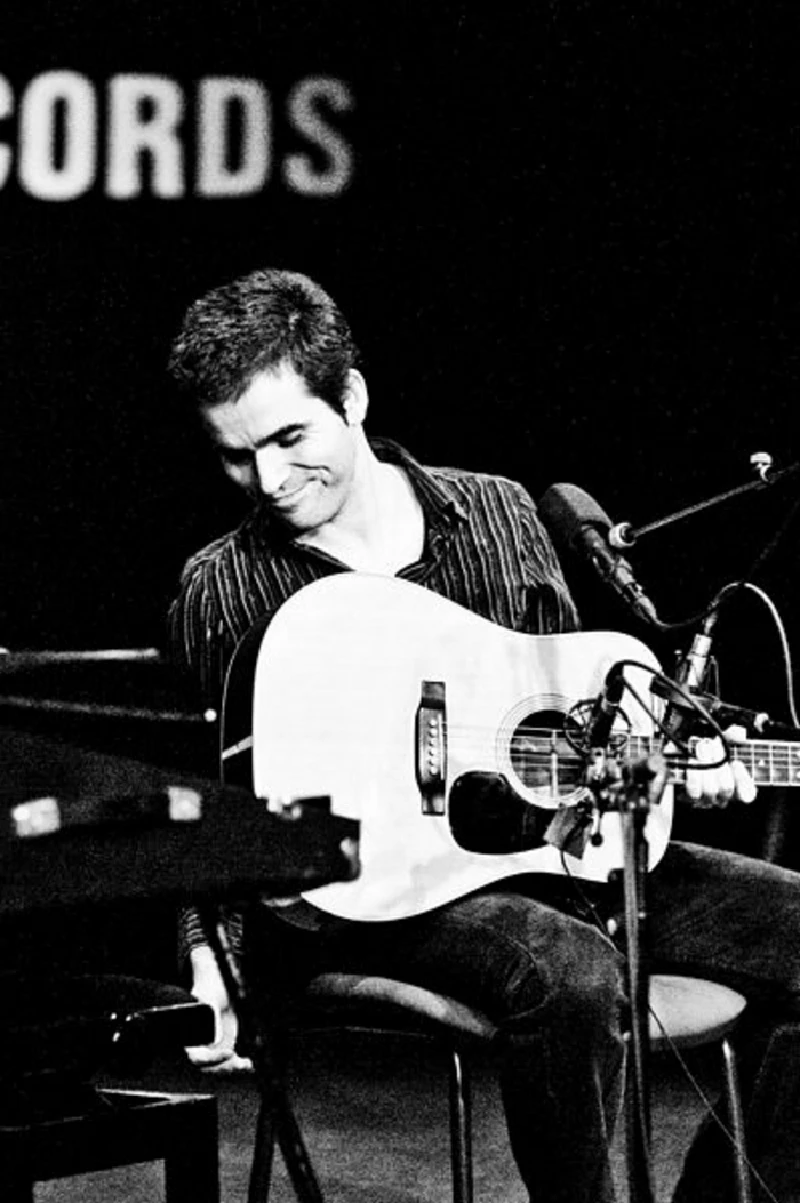
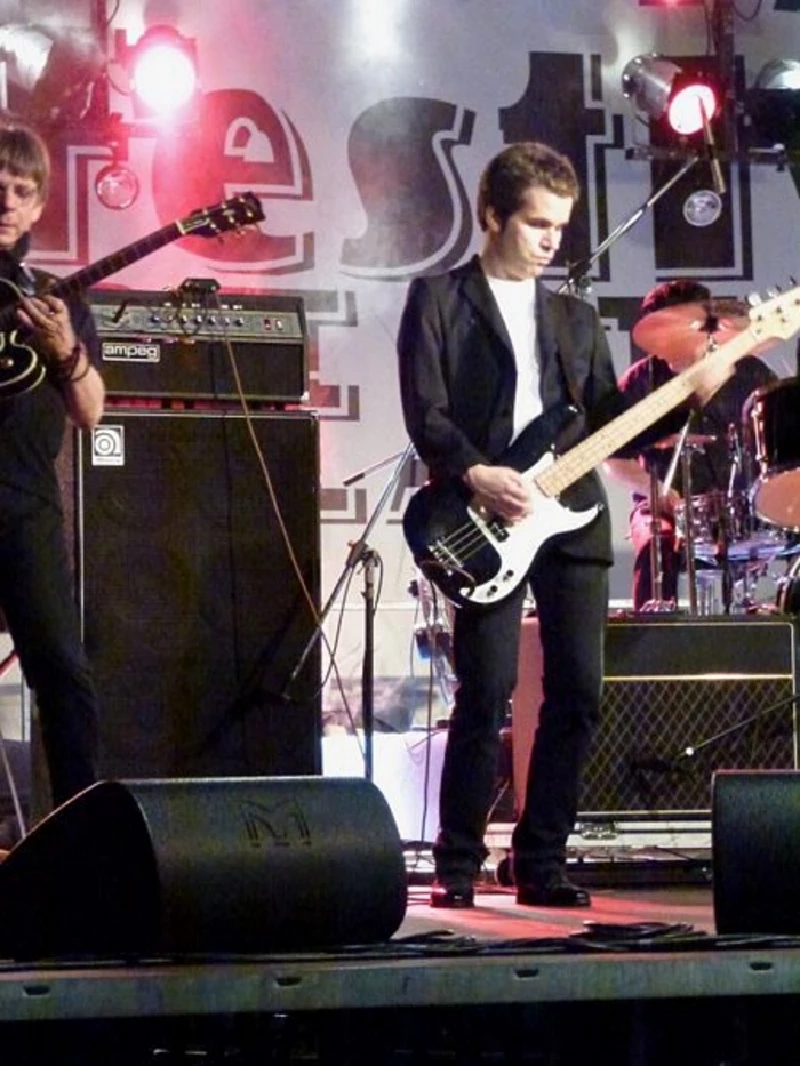
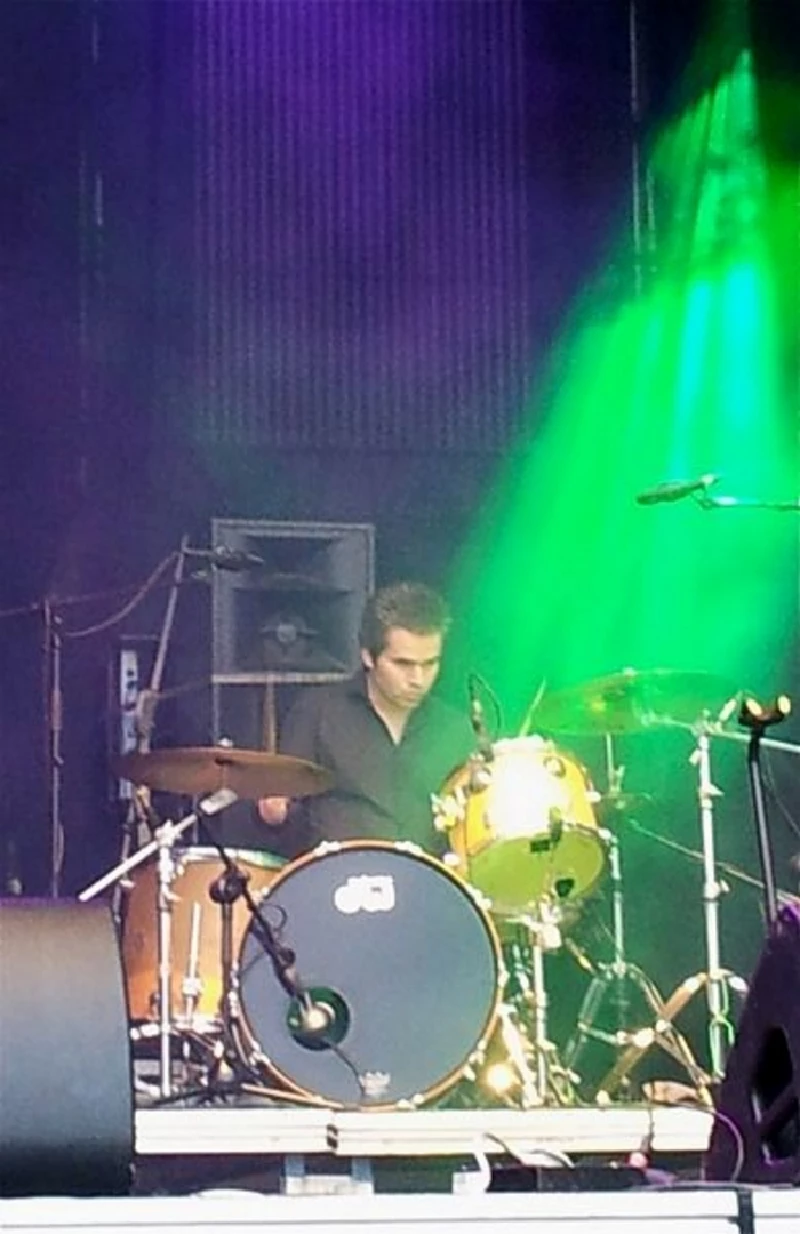
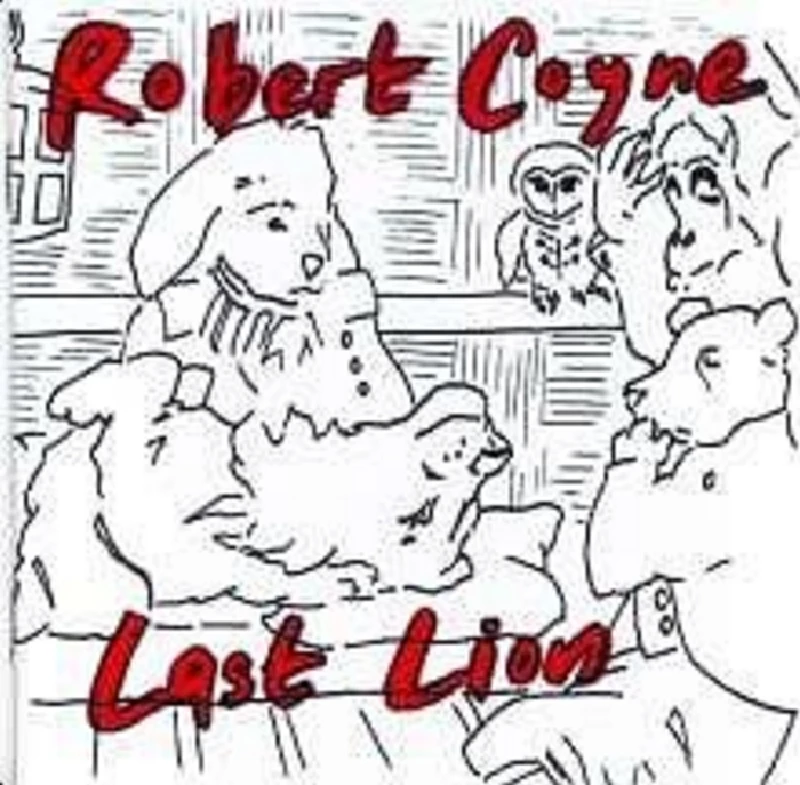
reviews |
|
Out of Your Tree (2018) |
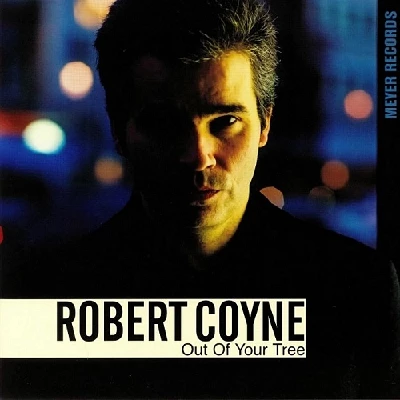
|
| Mature but melancholic third album from British singer-songwriter and multi-instrumentalist Robert Coyne |
| Last Lion (2016) |
most viewed articles
current edition
Carl Ewens - David Bowie 1964 to 1982 On Track: Every Album, Every SongJohn McKay - Interview
Editorial - July 2025
Billie Eilish - O2 Arena, London, 10/7/2025
Bathers - Photoscapes 2
Bathers - Photoscapes 1
Visor Fest - Valencia, Spain, 26/9/2025...27/9/2025
Cleo Laine - 1927-2025
Hothouse Flowers - Photoscapes
Simian Life - Interview
previous editions
Heavenly - P.U.N.K. Girl EPBeautiful South - Ten Songs That Made Me Love...
Trudie Myerscough-Harris - Interview
Pixies - Ten Songs That Made Me Love...
Boomtown Rats - Ten Songs That Made Me Love....
Fall - Hex Enduction Hour
Sam Brown - Interview Part 2
Doris Brendel - Interview
Blues and Gospel Train - Manchester, 7th May 1964
Love - Interview
most viewed reviews
current edition
Sick Man of Europe - The Sick Man of EuropeAmy Macdonald - Is This What You've Been Waiting For?
Phew, Erika Kobayashi,, Dieter Moebius - Radium Girls
Alice Cooper - The Revenge of Alice Cooper
Blueboy - 2
Lucy Spraggan - Other Sides of the Moon
Cynthia Erivo - I Forgive You
Bush - I Beat Loneliness
Davey Woodward - Mumbo in the Jumbo
Philip Jeays - Victoria
Pennyblackmusic Regular Contributors
Adrian Janes
Amanda J. Window
Andrew Twambley
Anthony Dhanendran
Benjamin Howarth
Cila Warncke
Daniel Cressey
Darren Aston
Dastardly
Dave Goodwin
Denzil Watson
Dominic B. Simpson
Eoghan Lyng
Fiona Hutchings
Harry Sherriff
Helen Tipping
Jamie Rowland
John Clarkson
Julie Cruickshank
Kimberly Bright
Lisa Torem
Maarten Schiethart